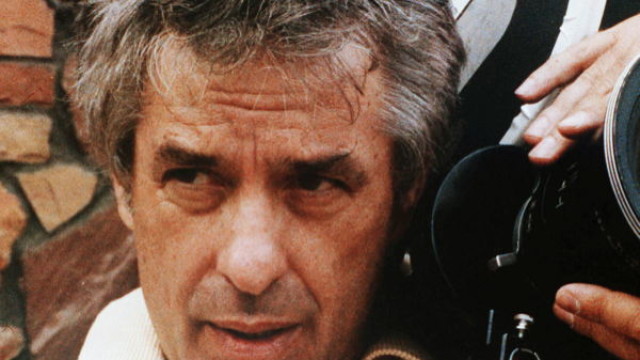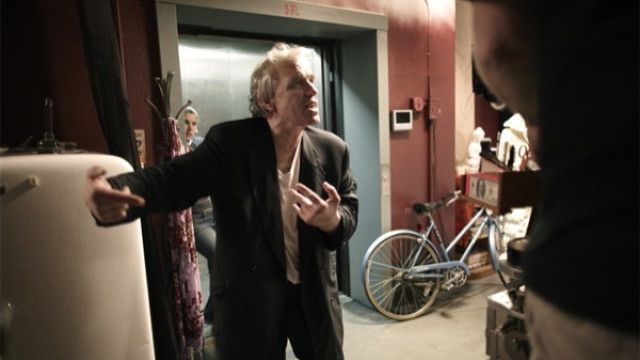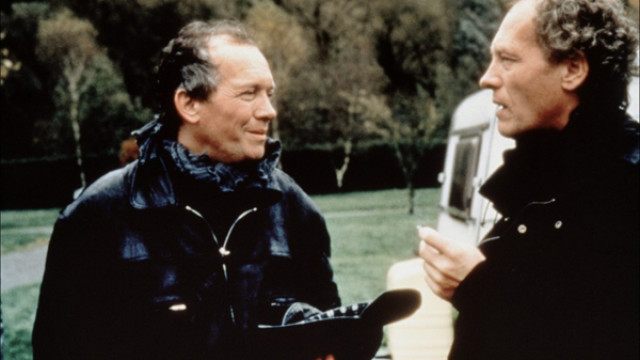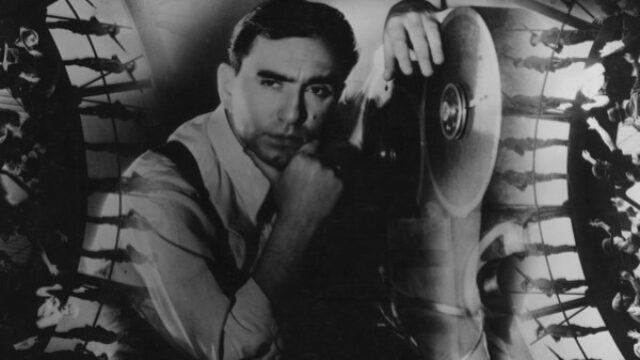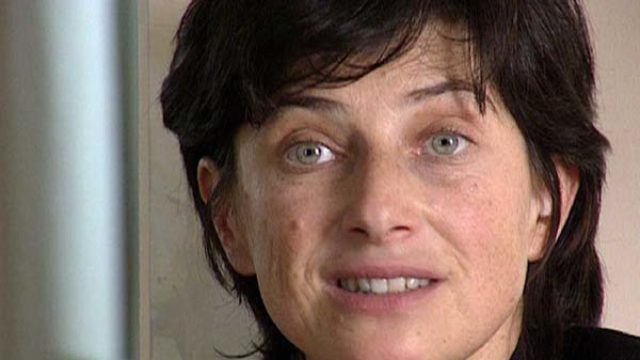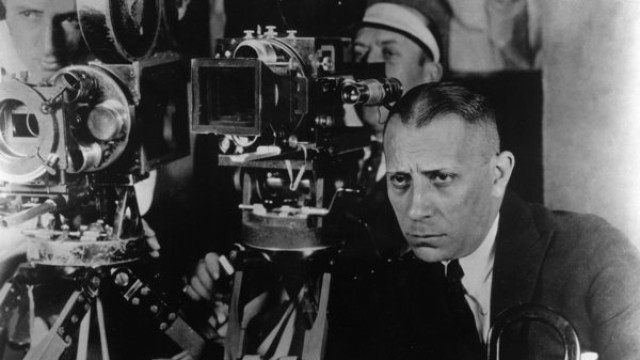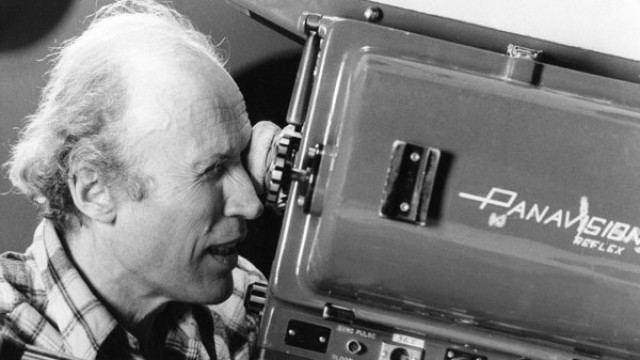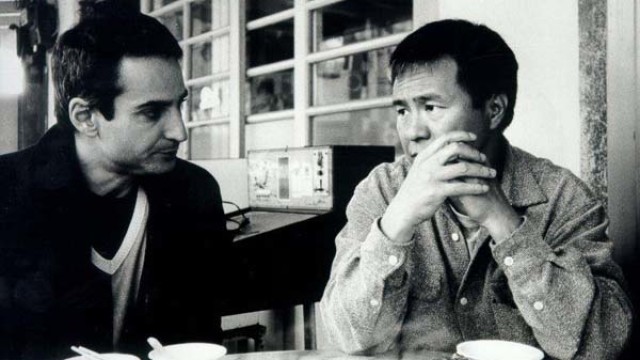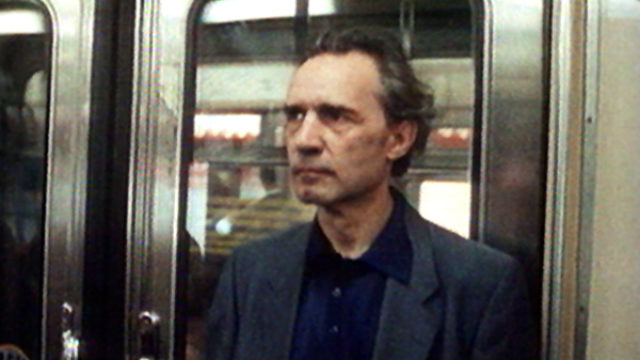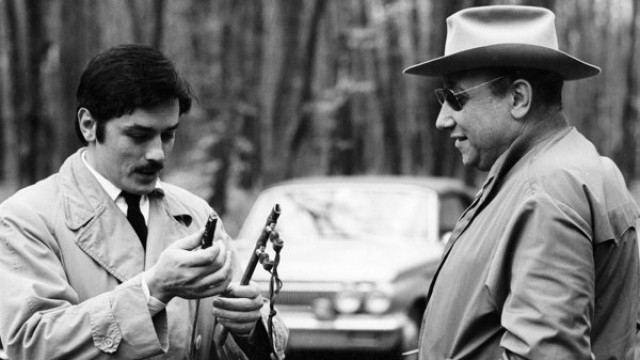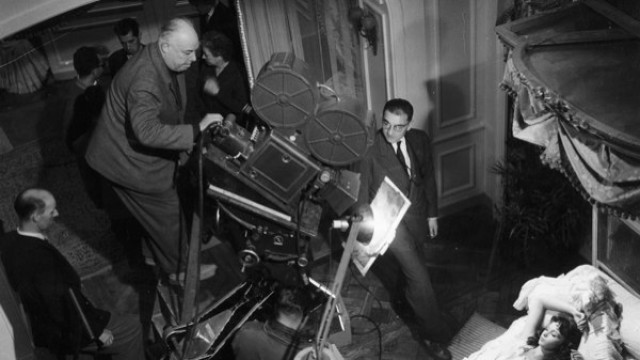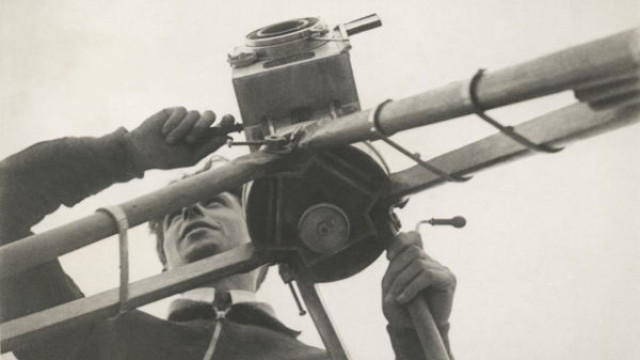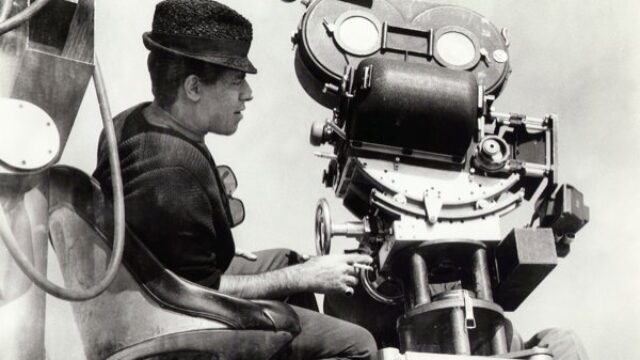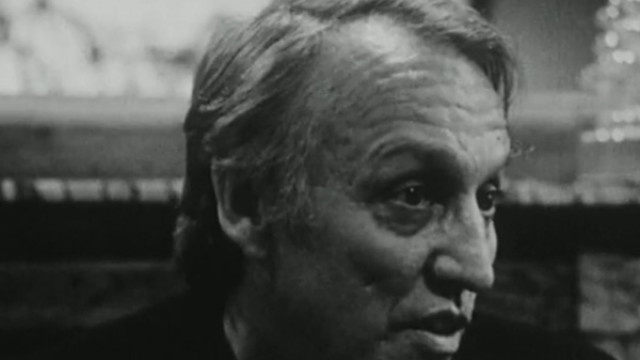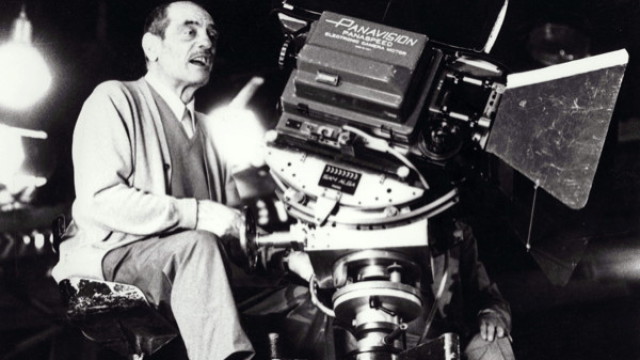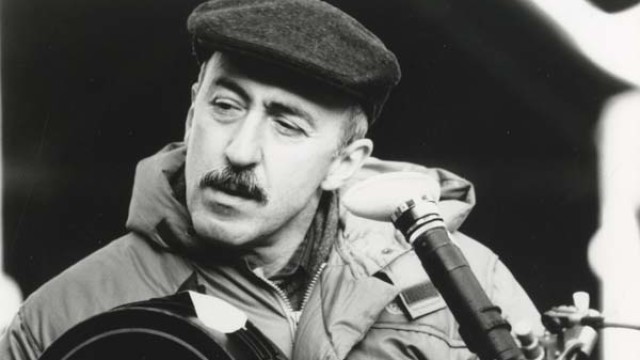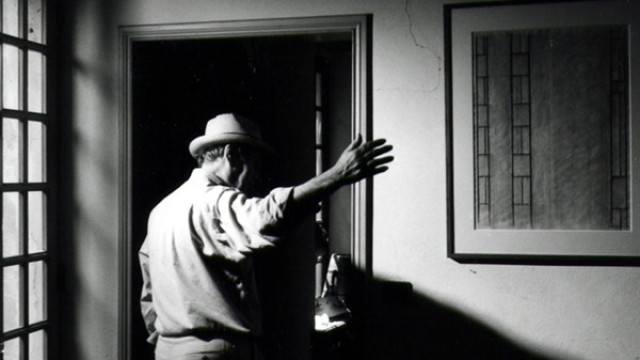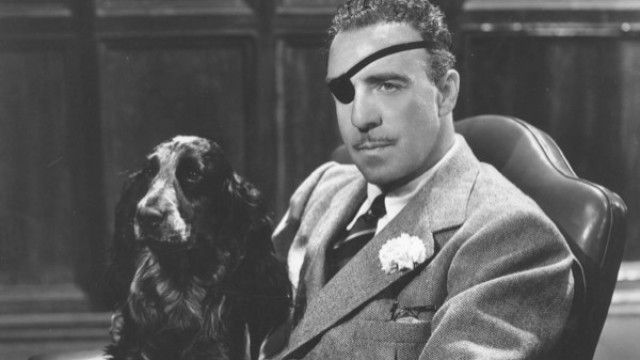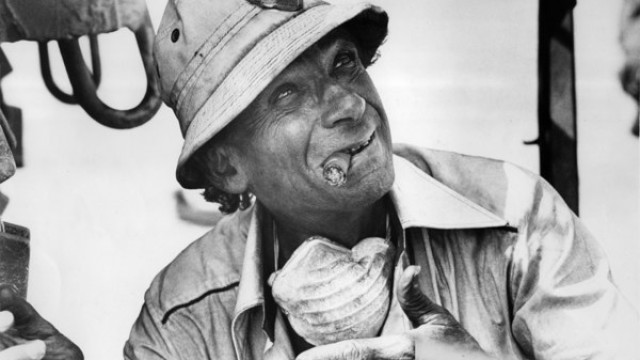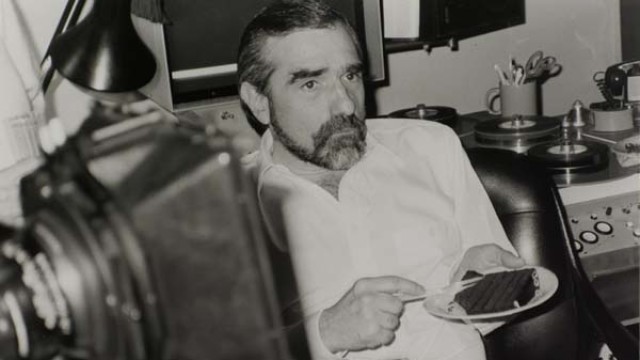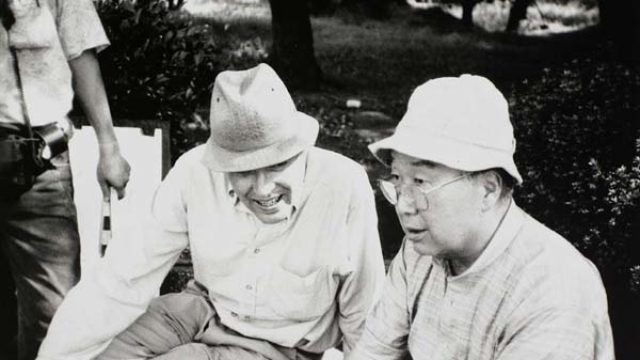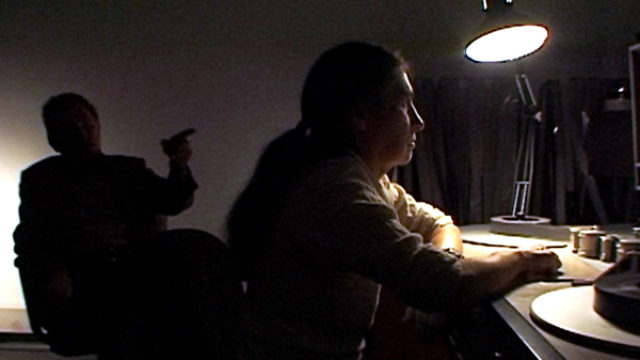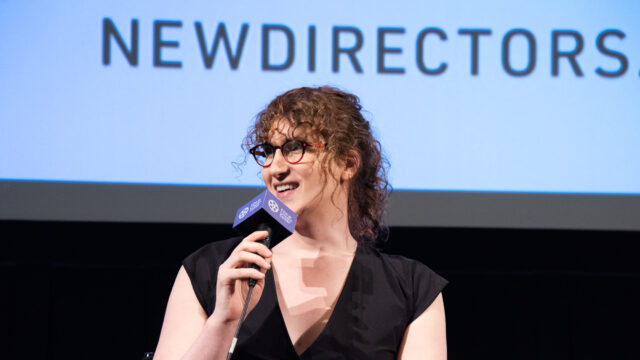NYFF50: Cinéastes/Cinema of Our Time
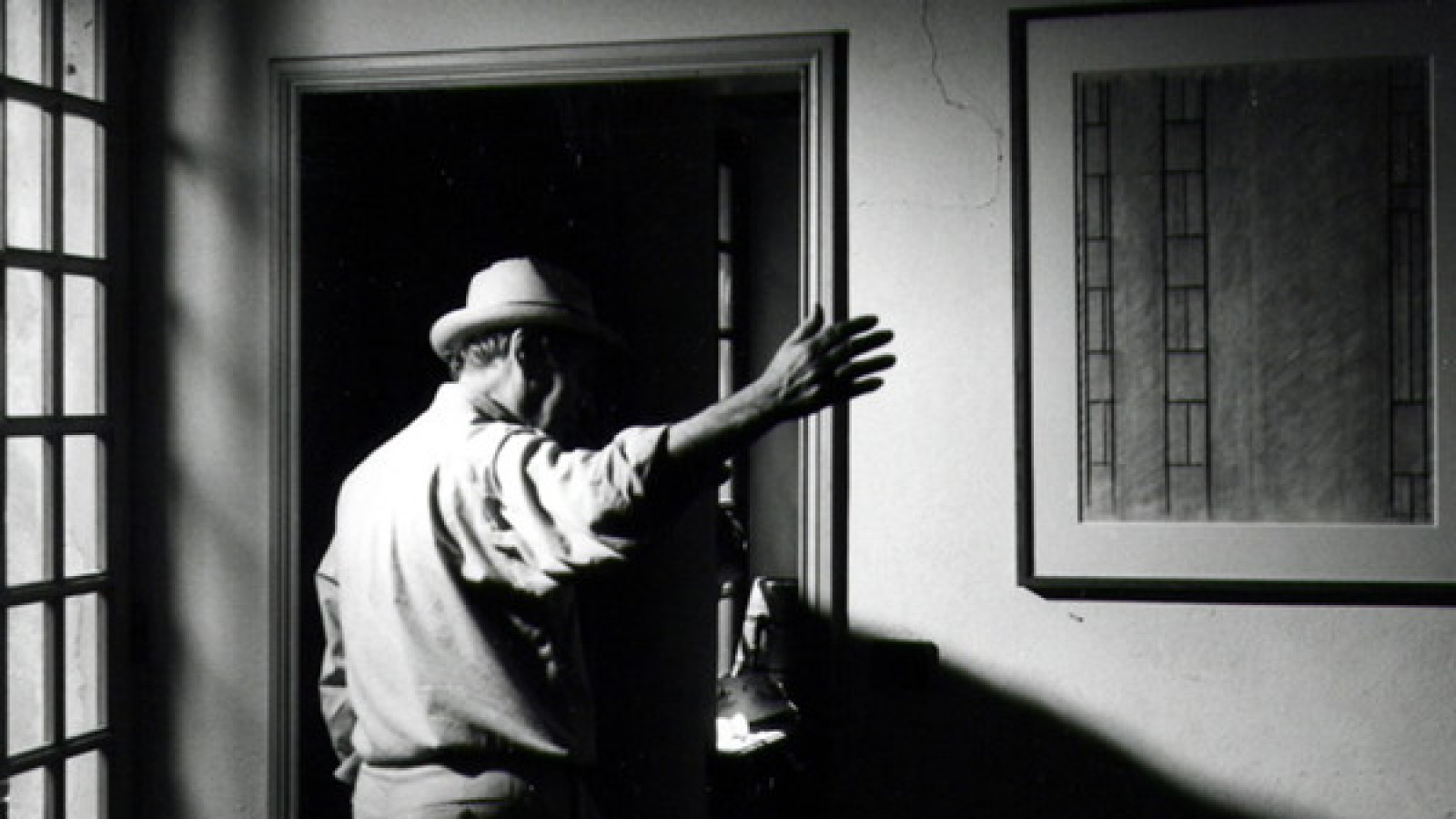
October 3 – 14
Ticket Info | Membership Offer | Follow the Film Society
André S. Labarthe in person for select screenings on 10/3 and 10/4!
In 1964, film critic and filmmaker André S. Labarthe, together with Janine Bazin, widow of influential film theorist André Bazin, approached the French television channel ORTF about starting a program that would resemble the long, in-depth interviews with film directors that magazines such as Cahiers du cinéma and Positif regularly published. ORTF gave the green light, and Cinéastes de notre temps (Filmmakers of Our Time) was born. Many of the programs were dedicated to older directors, then in retirement or in the final stages of their careers. Instead of TV journalists, Labarthe and Bazin would often ask well-known film directors to make these programs: thus, Jacques Rivette on Jean Renoir, or Jacques Rozier on Jean Vigo.
Cinéastes de notre temps lasted until 1971, when ORTF, for various clear and unclear reasons, decided to terminate production. Over the following years, the series became almost legendary, with occasional bits of its programs appearing in other films. In 1988, ARTE, the French-German cultural channel, decided to reprise the series, now under the title Cinéma, de notre temps. The focus shifted to contemporary filmmakers, and generally speaking directors were now more free to choose their own approaches—such as the self-portrait by Chantal Akerman or the film noir style of Rafi Pitts' film on Abel Ferrara.
The films made for both Cinéastes and Cinéma, de notre temps together form an invaluable history of the cinema, full of insights into the work of individual filmmakers as well as a sense of the shifts in taste and ideas about cinema. This series was programmed by Véronique Godard & Richard Peña, and made possible through the generosity of the INA (Institut National de l'Audiovisuel) and AMIP (Associate Production Company) in Paris. Special thanks to the Cultural Services of the French Embassy, to Thierry Lounas and Valentina Novati.
John Cassavetes
Opening Night!
Though it focused in its early days on the titans of old Hollywood, the Cinéastes team also made time for the “New American Cinema,” as seen in these two portraits of the mavericks John Cassavetes and Shirley Clarke. Screening with Rome is Burning (Portrait of Shirley Clarke) (Noël Burch & André S. Labarthe, 1970) on October 4.
Abel Ferrara: Not Guilty
Franco-Iranian director Rafi Pitts arrives in New York to film a portrait of Abel Ferrara, only to find himself dodged by his elusive subject at every turn.
Alain Cavalier: 7 Chapters, 5 days, 2 Kitchens
Screening with: The “Home Cinema” of the Dardenne Brothers (Jean-Pierre Limosin, 2006). Episode director Jean-Pierre Limosin films his subject, filmmaker Alain Cavalier, in an intimate, personal style that echoes Cavalier’s own work; a decade later, he brings a similar approach to his portrait of brothers Luc and Jean-Pierre Dardenne.
Busby Berkeley
Screening with: A Conversation with George Cukor (Hubert Knapp & André S. Labarthe, 1969). Legendary director-choreographer Busby Berkeley discusses the technical challenges of his work; seated poolside, George Cukor details his influences and his work with actors.
Chantal Akerman by Chantal Akerman
Screening with: Philippe Garrel, Artist (Françoise Etchegaray, 1999). Approached to direct an episode of the series, Chantal Akerman turns the camera on herself; plus, a rare, intimate portrait of the enigmatic Philippe Garrel.
Erich von Stroheim
One of the episodes devoted to filmmakers “unavailable for interviews” (i.e. dead) focuses on the enigmatic von Stroheim and attempts to separate the man from his myth.
Eric Rohmer, Evidence
Over eight days of filming, Eric Rohmer candidly discusses his work, the relationship of literature and film, and much else with co-interviewers Labarthe and Jean Douchet
HHH, A Portrait of Hou Hsiao-hsien
The first series episode to garner a theatrical release finds Olivier Assayas following Hou Hsiao-Hsien on a disarming guided tour of Taiwan.
Jacques Rivette: The Night Watchman
The influential critic Serge Daney and filmmaker Claire Denis tag-team interviewed Jacques Rivette (for whom Denis had been an assistant) for this candid, two-part portrait.
Jean-Pierre Melville: A Portrait in 9 Poses
Screening with: Catherine Breillat: The First Time (Luc Moullet, 2011). Labarthe’s reworked version of his film on Jean-Pierre Melville, shot during pre-production on <i>Un Flic<i>; plus, Luc Moullet’s surprisingly tender look at Catherine Breillat and her controversial explorations of female sexuality.
Jean Renoir, The Boss: The Rule and the Exception
In the third part of a Cinéastes triptych on Jean Renoir, the director sits alone in a cinema analyzing scenes from La Marseillaise and The Rules of the Game, and discussing his editing and storytelling techniques.
Jean Vigo
Jacques Rozier, director of the quintessential New Wave film Adieu Philippine looks at the life and work of the grandfather of all independent filmmakers, Jean Vigo.
Jerry Lewis (Part One)
Screening with: David Lynch, Don’t Look at Me (Guy Girard, 1989). Labarthe captures Jerry Lewis during an extraordinary appearance before an audience of London film students in one of the series’ most unusual—and best—films; plus, David Lynch avoids explaining himself during the scoring of Wild at Heart.
Joseph Losey
Screening with: Otto Preminger and the Dangerous Woman (André S. Labarthe, 1972-2012). Two uncompleted episodes of the series, consisting primarily of rushes from interviews with their respective subjects: Losey on the heels of his great triumph in Cannes with The Go-Between and Preminger in conversation with celebrated film scholar Annette Michelson.
Luis Buñuel: A Filmmaker of Our Time
Screening with: Lang/Godard: The Dinosaur and the Baby (André S. Labarthe, 1967). The inaugural Cinéastes episode follows Luis Buñuel on a visit to Spain; plus, a one-of-a-kind 1964 conversation between Fritz Lang and Jean-Luc Godard.
Otar Iosseliani, The Whistling Blackbird
A fascinating look at Georgian expat filmmaker Otar Iosseliani through the lens of his former assistant Julie Bertucelli, focused on his unique working methods and conception of cinema.
The New Wave: Remedy or Poison?
Screening with: Wild Man Pasolini (Jean-André Fieschi, 1966-1991). Five years after the explosion of the French New Wave, Labarthe and collaborator Janine Bazin convened a roundtable of prominent filmmakers (plus Henri Langlois) to discuss the past, present and future of the movement; plus, critic and filmmaker Fieschi’s revised version of his portrait of Passolini at his most polemical.
Raoul Walsh or the Good Old Days
Screening with: Josef von Sternberg: From Silence Comes the Other (André S. Labarthe, 1967). Newly retired from filmmaking, Raoul Walsh recounts his work with D.W. Griffith, his beginnings at Warner Brothers, and his adventures with Bogart, Flynn, Gable and Cooper; plus, the elderly Joseph von Sternberg laments the failure of critics and the public to truly understand his work.
Samuel Fuller, Independent Filmmaker
Screening with: Fuller at the Editing Table (André S. Labarthe, 1982). One of the cinema’s great raconteurs, Fuller here takes on everything from racism to communism, and from money problems to wartime combat; plus, a short film made by Labarthe 15 years later from unused outtakes
The Scorsese Machine
Screening with: Scorsese at the Editing Table (André S. Labarthe, 1995). In one of the series’ most widely seen episodes, Labarthe and his crew film Scorsese at his office, at home with his parents and elsewhere, allowing him to speak whenever he feels like it rather than asking conventional questions; in the subsequent Scorsese at the Editing Table, Labarthe revisits the filmmaker to discuss several sequences from Taxi Driver.
Shohei Imamura: The Free Thinker
Screening with: One Day in the Life of Andreï Arsenevitch (Chris Marker, 2000). Portuguese filmmaker Paul Rocha sets out to visit the the boldly iconoclastic Shohei Imamura, and Chris Marker delivers a brilliant study of Andreï Tarkovsky in the final months of his working life.
Danièle Huillet, Jean-Marie Straub, Cinéastes
Portuguese director Pedro Costa observes the husband-and-wife filmmaking team of Jean-Marie Straub and Danièle Huillet as they create a new version of their film Sicilia! together with the art students at la Fresnoy in France.

